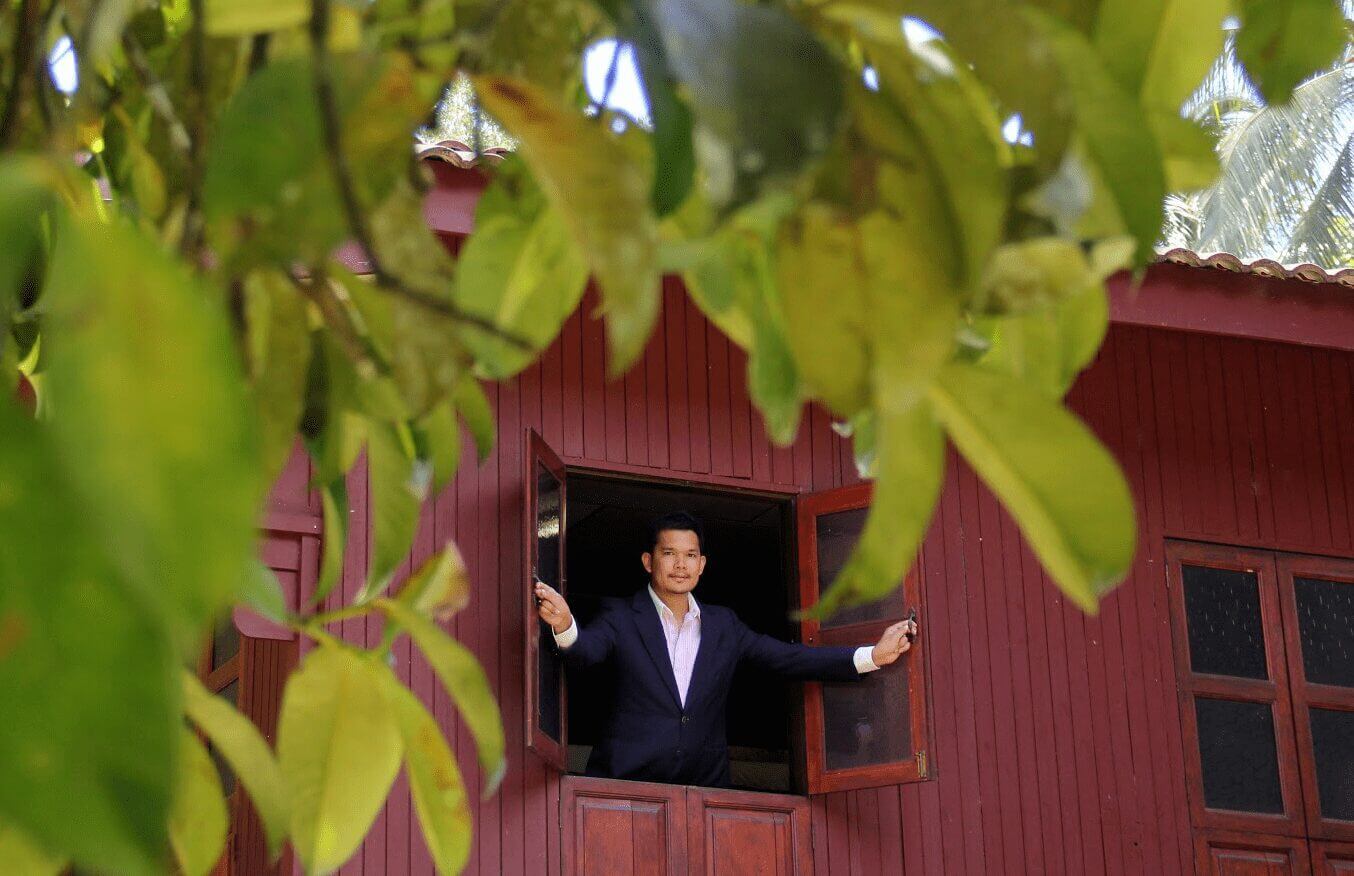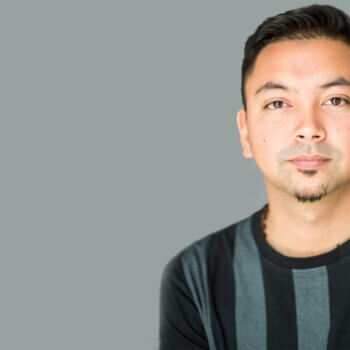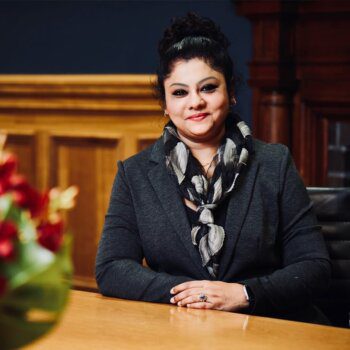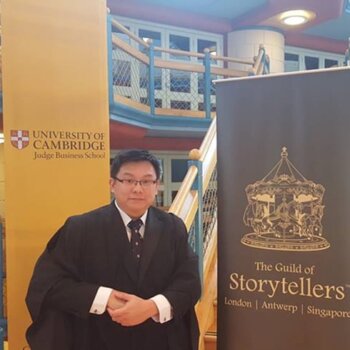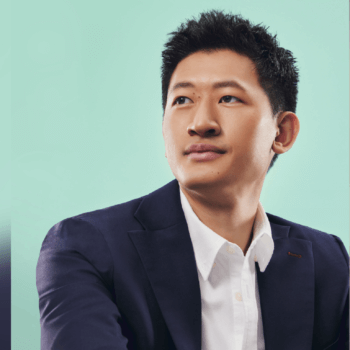Iskander Azizuddin was born and raised in Kuala Lumpur. He is the eldest of 5 children. Iskander started his first job in an investment bank where he stayed on for several years before resigning to pursue a life of entrepreneurship.
From a young age, Iskander was fortunate to be able to travel to many exotic places steeped with culture and history like Egypt and Turkey. His love for traveling has never stopped and he believes the world has so much to show and if given the opportunity, everyone should explore it.
Iskander has always had an appreciation for the outdoors and Malaysian has its many gems to discover, with this passion he pursues his business The Alangs.
In your own words what is The Alangs?
The Alangs is a constantly evolving and expanding rural retreat located by the Gombak River. It is far enough from bustling city life to but not too far for the always working individual. The Alangs consists of three beautiful retreats that cater to all occasions.
For me The Alangs is an experiment in entrepreneurship; refining methods in staff management, marketing strategy and steady growth. It is a sandbox environment where I can carry out other entrepreneurial experiments whilst minimizing costs and having complete control over the direction of the business.
How did you come up with the idea of The Alangs?
The idea for The Alangs, like most ideas, was stumbled upon when I recognized an opportunity to create something I could call my own. At the time I was working in an investment bank and after 5 years I was feeling restless.
My late grandfather left a parcel of land to my mother whom at the time did not have the time to manage it. When I first saw the land all these ideas whirled in my head. There were so many things I could do with the land. It is often said that when you are doing something you are passionate about, it is no longer considered work. I loved the outdoors, trekking through rivers and jungle. It was only natural that one of the ideas I had was an outdoor retreat.
Could you walk us through the process of starting up The Alangs?
We brainstormed many ideas before deciding on a kampung-themed retreat. Factors which led to our decision were startup cost, manpower required, additional construction work required, business potential and value proposition.
When we decided on the kampung-themed retreat we formed a plan of how to prepare the land.
The plan consisted of:
Land clearing – the land featured a solid kampung house and some unfinished construction work. Grass and weeds enveloped the land.
Accommodation / facilities – refurbishing / renovating the main house, install new doors, plumbing, fencing and roofing. Added a store and kitchen.
Landscaping – planted trees and flowers to beautify the place. A fresh layer of soil and grass was required.
Building a team – staffing was required to take care of guests, maintenance of the facilities and handiwork in and around The Alangs
Marketing – limited budget was allocated for marketing as most of the funding was put to building The Alangs. Brochures and social media was our main source of marketing. The website was built by me as a portal to find out more about The Alangs.
Did you encounter any particular difficulties during startup?
Manual labour and design work is expensive. To minimize costs most of the work was carried out by my father, my brother and myself. Web design, brochure design and the social media marketing was done by either me or my brother.
How have you been developing The Alangs since startup?
The Alangs started in 2011 as Alang Manja with just one piece of land an acre in size which consisted of a kampung house. We added an outdoor ‘dewan’ and an elevated deck to accommodate day trips and private events.
In 2015, we acquired 2 more plots of land, calling it Alang Ria and Alang Mesra.
Alang Ria features dormitory style accommodation for up to 70 pax, various lodges for up to 30 pax in total, a meeting hall for that can fit 100 pax and a surau for 100 pax. There is also a goat house and football field.
Alang Mesra consists of three chalets which can accommodate 7 pax each, a meeting hall for up to 100 pax, a camping ground for up to 100 pax, an outdoor kitchen and a freshwater fish pond.
We now employ a team to handle marketing and day to day operations of The Alangs. I enforce a three day work week for our office staff whose performance is goal oriented. I am only concerned with results. By giving responsibility and trust to my staff they have taken the initiative to get things done and we all work towards making The Alangs a success.
What kind of feedback did you get for The Alangs so far?
Feedback has been very encouraging so far. Any shortfalls in service or facilities is addressed to ensure no repeats. Offering a chance to reconnect with nature is a good approach and has been popular with guests looking for a different kind of holiday. This is especially so with our corporate clients who need a quiet, conducive environment for team building and brainstorming.
Do you face a lot of competition in this industry?
Fortunately, the industry competition is limited to locality. There are not many retreats in the surrounding area of The Alangs. Located by the Gombak River and very near to nature, The Alangs offers a natural outdoor experience away from the hustle and bustle of city life.
Due to the limited competition, it was not very difficult to stand out. We built facilities which can accommodate large groups, corporate guests and families. With three different accommodation offerings, The Alangs is an all-in-one business and pleasure destination.
What can you tell us about the industry?
The hospitality industry places emphasis on looking after your guests. Guests like added value; complimentary services and add ons are a plus. When the guest receives more than they have paid for, then they will view your establishment favourably (most of the time).
How do you plan to stay relevant in this industry?
The Alangs began by offering accommodation and a venue to host events. As we add more facilities we now offer our own catering services and have branched into offering customized team building courses for groups.
What is the future of the industry in your opinion?
The hospitality industry will always be relevant; people need to rejuvenate, to relax and get a change of scene from time to time. The industry has seen new innovative services and products introduced. With the advancement of technology, hospitality services are coming up with faster and more efficient business processes making the customer experience smoother.
Was there anything that disappointed you initially?
Starting a business takes time. When I started, I was very enthusiastic and would make sure I did something productive each day towards accomplishing my goal. Unfortunately, not everyone works with a fast turnaround time. I was frustrated with how long it would take me to get commissioned work done. Patience and understanding is key.
What do you think about being an entrepreneur in Asia?
There is a lot of competition in whichever industry. You need to find a balance between a product or service that is too niche or too broad. Either end of a spectrum could result in very slow growth. Competition is healthy and provides a reference point for which new businesses can learn from and build upon. Mistakes can be avoided or minimized because most of these businesses are open to public scrutiny through social media.
What is your opinion on Asian entrepreneurship vs Western entrepreneurship?
I believe entrepreneurship practices are borderless. We have adopted business models from the West and they have adopted practices from this side of the world. Entrepreneurs all share a similar trait; we have the courage to take risks. The level of risk varies from each entrepreneur.
What is your definition of success?
My definition of success is a balanced lifestyle, a happy family, industry recognition and steady / growing profitable income. A supportive environment is crucial in the growth of any business. There is no such thing as overnight success.
Why did you decide to become an entrepreneur?
Working in a corporate environment for five years exposed me to the ins and outs of how a company is run. A majority of my colleagues had been attached to the company for a very long time. The stability and consistent income was a major factor even though they were unhappy with the monotony of corporate life. Most also had side business ventures to supplement their income. I did not want to fall into that cycle. I was brimming with ideas and I wanted to be the decision maker.
What do you think are the most important things entrepreneurs should keep in mind?
Your initial idea is not always the perfect idea, even though most like to think so. Ideas should adapt to the market and constantly evolve to cater to current trends. Feedback and constructive criticism should be respected and not dismissed.
In your opinion, what are the keys to entrepreneurial success?
A lot of hard work, perseverance and an open mindset is key in succeeding. Set yourself a realistic time line for results. For me, two years is a good benchmark.
Any parting words of wisdom for entrepreneurs out there?
Approach things with a goal in mind. Be realistic and spend wisely. Learn a skill as it will save you money and can add to one’s talents. Entrepreneurs should be very careful and strict with how money is spent. It is a good trait and will go a long way in building a solid foundation. Work hard, work smart, get down and dirty.
Connect
